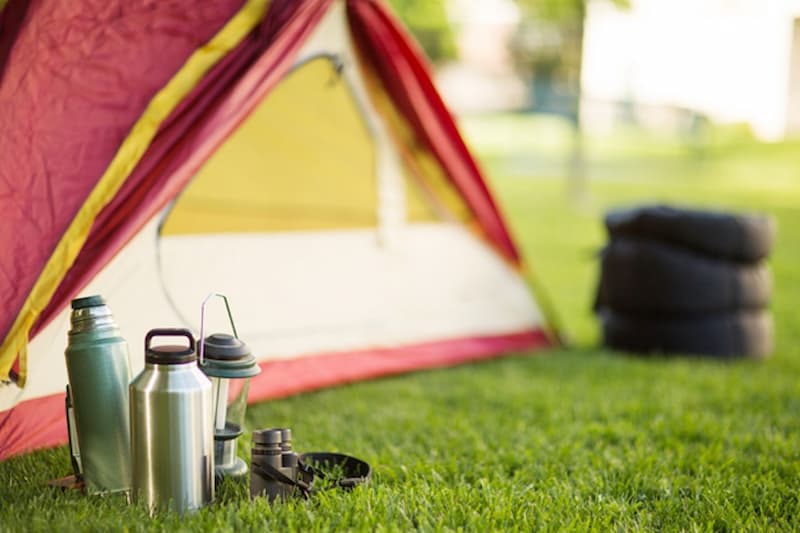 Add My Company
Add My Company

Camping allows us to reconnect with nature and create precious memories, but it’s essential to do so responsibly to preserve our beautiful planet. It’s vital to embrace responsible practices to ensure the long-term sustainability of our environment.
So, in this blog, we’re exploring the environmental benefits of using camping gas and offering practical tips for environmentally friendly camping with our help.
Prevention of Air Pollution
Air pollution has an extremely negative effect on any ecosystem and the wildlife that inhabits them. For example, in extreme cases, pollutants such as CO2, nitrogen oxides, and sulphur dioxide could be released back into the atmosphere and cause acid rain. The effect of this can lead to the deterioration of ecosystems and the biodiversity of the local wildlife. But what can we do to stop these pollutants being released?
Well, when it comes to camping, using gas instead of traditional fuels like wood or disposable fuel canisters can significantly reduce air pollution. Conventional fuels can release harmful pollutants into the air, contributing to smog and adversely affecting wildlife and ecosystems. By opting for our camping gas canisters, you can help prevent air pollution and protect the environment.
Practical Tips for Environmentally Friendly Camping
At Adams Gas, we believe in providing the best camping gas solutions and guiding you towards responsible camping practices. So, here are some practical tips for environmentally friendly camping:
Choose camping gas: Opt for camping gas bottles instead of traditional fuels. Our camping gas bottles are designed to be efficient, safe, and easy to use, offering a reliable and eco-friendly alternative.
Efficient stoves and lanterns: Using camping gas stoves and lanterns rather than open fires provides a more controlled heat source and reduces the risk of accidental wildfires.
Mindful wood burning: If you prefer burning wood, you must ensure it’s untreated and harvested sustainably. One way that you can do this is by gathering fallen branches and twigs instead of taking cuttings from live trees.

Promoting Responsible Camping Practices
Responsible camping is about loving nature and leaving no trace, as The Countryside Code mentions: ‘Leave nothing but footprints, take nothing but memories and photographs,’. We understand the importance of protecting the environment for future generations. When you are camping, here are some things to remember:
Leave No Trace
Dispose of all waste in the correct manner; this includes any food waste and packaging. Before you leave, ensure that you have preserved the natural beauty of the campsite for the next campers to enjoy.
Respect Wildlife
Always keep a safe distance from wildlife and observe them afar. Please don’t feed or disturb them; you are visiting their home. Remember, respecting wildlife is essential not only for their well-being but also for yours.
Campfire Safety
If campfires are allowed on your campsite, it’s important to follow all of the safety guidelines. Choose a safe location away from flammable materials, clear the area and have water or sand nearby, and build and control the fire with small, dry wood.
Stay on Designated Trails
While you are out enjoying the scenery, make sure that you stick to the designated trails, stopping you from accidentally trampling on sensitive plants. Also, make sure that you pitch your tent in established campsites.

Safety and Storage Tips for Camping Gas
While camping gas is a safe and reliable fuel source, following proper safety guidelines is crucial. Not only to protect yourself but to protect those around you and the environment. Here are five essential safety and storage tips for camping gas:
Correct storage: Store camping gas cylinders in cool, dry, and well-ventilated areas away from direct sunlight, heat sources, and flammable materials. While camping, ensure your gas bottles are stored upright to avoid any gas leaks. If travelling, use metal or plastic containers to transport them.
Regular inspection: If you plan on using camping gas, inspect them regularly. Look for any cracks, dents or bulges in the cylinder. If you see any damage or smell gas, you can return the bottle to us at Adams Gas, and we’ll safely dispose of them. We are experts in recycling, repurposing, and gas cylinder filling, so you can trust us to give you reliable and honest advice.
Transportation safety: When transporting camping gas canisters, ensure they’re kept upright and secured in a well-ventilated area of your vehicle. Depending on the bottle’s size, this could be the passenger seat or the foot well.
Emergency Preparedness: Preparing for emergencies is crucial when camping. Before using the gas, familiarise yourself with all of the safety features of your propane gas cylinders and ensure you have a fire extinguisher in hand. If there’s a gas leak, immediately turn off all the gas appliances and move them away as far as possible from your campsite.

Why Choose Adams Gas?
By embracing environmentally friendly camping and choosing Adams Gas as your camping gas supplier, you are taking an important step towards minimising your impact on the environment. Whether you need camping gas canisters, bottles, or cylinders, we offer a range of different gases, from propane to butane, to suit your needs.
At Adams Gas, we are here to support you on your environmentally friendly camping journey. Contact us today to find out more. Let’s explore the great outdoors while preserving it for future adventures.
For more information on ENVIRONMENTALLY FRIENDLY CAMPING: HOW CAMPING GAS REDUCES YOUR CARBON FOOTPRINT talk to Adams Gas

